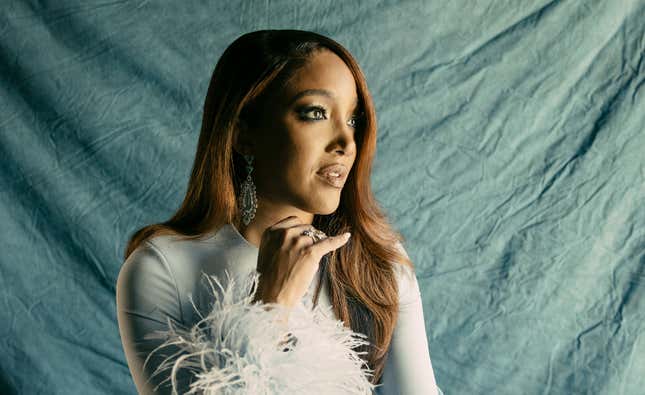
Over the last few years, country singer Mickey Guyton has cemented her place in the predominantly white male genre. Her hits “Black Like Me” and “Remember Her Name” let fans know she wouldn’t leave her Blackness out of her music just to make things easier. In 2022, her hard work paid off as she was a featured performer at the Essence Festival of Culture, hosted PBS’ A Capitol Fourth celebration, received three nominations at the 64th Annual Grammy Awards—including the first for a Black artist for Best Country Album—and sang the national anthem at the Super Bowl, the most watched TV event of the year. With all that success, it’s no surprise she was named Time’s Breakthrough Artist of the Year.
Along with Guyton, artists like Jimmie Allen, Blanco Brown, Brittney Spencer, Breland and Kane Brown are making Black voices a regular presence in country music, but it’s not just about who’s standing out front singing and accepting awards. These artists need support from fans to show executives and program directors that their music is just as profitable as the neverending rotation of white guys singing about their trucks.
“I had so many country artists behind the scenes reach out to me, wanting to have conversations on what they could do. A lot of them did start finding musicians of color for their bands,” Guyton told Time. “There’s a drummer named Elizabeth Chan who played with me, who you now see at every country-music award show. Also, there are a lot more Black country artists that have loved the genre but didn’t think there was a space for them that are migrating to Nashville. But if you study the country-music charts, they’re against women and people of color.”
Like many fans, Guyton is not happy with the repetitive nature of country charts. They are exclusively topped by white men, often singing what sounds like the same song about a girl they met and lost, or just wanting to hang out and party all day. As a longtime listener, I can tell you there’s more to the music than just this.
“It’s fucking frustrating. There are so many incredible singers out there, and we’re just accepting the crumbs,” she said. “I keep thinking to myself, ‘I know some of you have daughters.’ And people get really upset when you talk about it. They’re just tired of hearing it. But these are people’s livelihoods and careers that you’re deciding. You need to give your listeners a little more credit.”
Representation is something that the “All American” singer is always fighting for. Even while dealing with the nerves and anticipation of performing at the Super Bowl, she still made sure the moment was impactful.
“It’s really hard right now with what’s going on in this country,” Guyton said. “I wanted to be proud of singing the national anthem. So if you had noticed the choir, it was really important to show what I saw America as. We chose someone with a disability, a Black trans woman, an Asian man.”
Despite the fact that she sees the genre going back to “regularly scheduled programming” where race is concerned, Guyton is still fighting to make hers and others’ voices heard. She wrote her new song, “I Still Pray,” after the mass shooting at Tops market in Buffalo in May.
“This song has an importance right now because I literally don’t have the answers. I’ve spent so many years outraged by everything and I don’t have the ability to be outraged anymore because it’s so exhausting,” she said. “The song is a message of, whoever you believe in, help us right now. Because we need it.”

